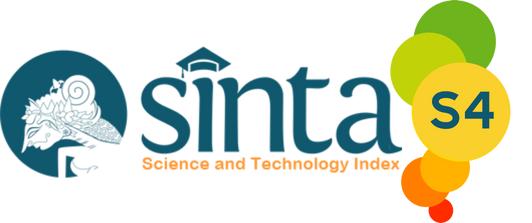Analysis Study Of Paulo Freire's Thoughts And Its Application In Elementary Education
DOI:
https://doi.org/10.29303/goescienceed.v5i4.516Abstract
The application of Freire's thinking in the context of elementary education can be seen through a dialogical and critical approach in teaching. Teachers not only convey knowledge, but also act as facilitators who help students to think critically and be actively involved in the learning process. The type of research used in this study is library research . Data sources in this library research consist of two categories: 1). Primary Data Sources: The main books written by Paulo Freire, especially Pedagogy of the Oppressed (1970). 2). Secondary Data Sources: Scientific articles, journals and research reports that discuss the application of Freire's thinking in elementary education. The results of the study show that 1). Critical Conscientization in Elementary Education is a process in which individuals understand the social and political injustices around them. 2). Dialogical Education in Elementary Education is a key element in education, where teachers and students learn from each other through two-way communication. 3). Humanistic and Inclusive Education in Elementary Education is where every student is valued as an individual who has the potential to develop, without discrimination based on social and economic background. 4). Implications for Basic Education in Indonesia are that the recently introduced independent curriculum gives teachers and students more freedom to explore subject matter flexibly, in accordance with the principles of liberating and dialogical education as taught by Freire
References
Aisyah, L., Rizqiqa, F., Putri, F., & Nulhaq, S. (2022). Kurikulum merdeka dalam perspektif pemikiran pendidikan Paulo Freire. At-Ta'lim: Jurnal Pendidikan, 8(2), 162-172. https://doi.org/10.55210/attalim.v8i2.819
Anwar, M., Ramdani, R., & Majid, A. (2019). The effect of using interactive students’ worksheet on learning achievement and students’ perception in the basic chemistry course (study on reaction rate). Proceedings of the 1st International Conference on Applied and Business Research (ICAMR 2018), 6. https://doi.org/10.2991/icamr-18.2019.6
Ashar, H. (2023). Konsep kurikulum pendidikan perspektif Paulo Freire dan Al Ghazali. Afeksi: Jurnal Penelitian dan Evaluasi Pendidikan, 4(6), 608-613. https://doi.org/10.35672/afeksi.v4i6.172
Asman, A. (2023). Paulo Freire's perspective on education: The neighborhood of the reality of Indonesian education. Edusoshum: Journal of Islamic Education and Social Humanities, 3(1), 29-38. https://doi.org/10.52366/edusoshum.v3i1.56
Awedh, M., Mueen, A., Zafar, B., & Manzoor, U. (2014). Using Socrative and smartphones for the support of collaborative learning. International Journal on Integrating Technology in Education, 3(4), 17-24. https://doi.org/10.5121/ijite.2014.3402
Desstya, A., Novitasari, I., Razak, A., & Sudrajat, K. (2018). Model pendidikan Paulo Freire, refleksi pendidikan IPA SD di Indonesia (Relevansi model pendidikan Paulo Freire dengan pendidikan IPA di sekolah dasar). Profesi Pendidikan Dasar, 1(1), 1. https://doi.org/10.23917/ppd.v1i1.2745
Effendi, Y., Bafadal, I., Sudana, I., & Arifin, I. (2020). Humanistic approach to principal’s leadership and its impacts in character education strengthening. OSF Preprints. https://doi.org/10.31219/osf.io/gwk78
Fadilah, K. (2024). Peran keluarga dalam membentuk kesadaran moral melalui pendidikan kewarganegaraan di sekolah dasar. Lentera: Multidisciplinary Studies, 2(3). https://doi.org/10.57096/lentera.v2i3.98
Famelia, W., Purnakarya, I., & Firdaus, -. (2021). The application of modification e-learning and collaborative learning methods in the public health nutrition basic course. Proceedings of the 4th International Conference on Public Health in Tropical and Coastal Regions (ICPH-TCR 2021). https://doi.org/10.2991/assehr.k.210202.072
Freire, P. (1970). Pedagogy of the Oppressed. New York: Herder and Herder.
Freire, P. (1996). Education, the Practice of Freedom. Writers and Readers Publishing.
Freire, P. (2005). Teachers as Cultural Workers: Letters to Those Who Dare Teach. Westview Press.
Gadotti, M. (1994). Reading Paulo Freire: His Life and Work. State University of New York Press.
Gustianingsih, D., Simatupang, G., & Sushartami, W. (2021). Conscientization dalam praksis site-specific performance komunitas semesta tari di NuArt Sculpture Park Bandung. Jurnal Kebudayaan, 16(2). https://doi.org/10.24832/jk.v16i2.406
Jemal, A. (2017). Critical consciousness: A critique and critical analysis of the literature. The Urban Review, 49(4), 602-626. https://doi.org/10.1007/s11256-017-0411-3
Ludiya, L. (2024). Pentingnya membangun kesadaran lingkungan melalui pembelajaran PKn di sekolah dasar guna membentuk karakter peduli lingkungan pada siswa. PGSD, 1(3), 11. https://doi.org/10.47134/pgsd.v1i3.529
Manullang, J., Maria, R., & Manullang, A. (2021). Relevansi pendidikan humanis Paulo Freire dengan pendidikan agama Kristen jenjang sekolah menengah atas. Jurnal Educatio FKIP Unma, 7(2), 482-490. https://doi.org/10.31949/educatio.v7i2.1088
Meguid, E., & Collins, M. (2017). Students' perceptions of lecturing approaches: Traditional versus interactive teaching. Advances in Medical Education and Practice, 8, 229-241. https://doi.org/10.2147/amep.s131851
Muis, A., Baharun, H., & Suwandi, S. (2022). Humanistic based inclusive education management in madrasah: Policy review. Al-Tanzim: Jurnal Manajemen Pendidikan Islam, 6(3), 894-906. https://doi.org/10.33650/al-tanzim.v6i3.3574
Nascimento, F., Silva, L., Magalhães, N., Morais, J., Brandt, A., Júnior, D., ... & Lopes, L. (2023). Continuous training of basic education teachers: The need for a critical-emancipatory reflection to resonate. Concilium, 23(7), 124-143. https://doi.org/10.53660/clm-1241-23e05
Nurlita, J. (2024). Konsepsi mengenai kesadaran hukum tentang ketaatan terhadap aturan hukum yang terkandung dalam pembelajaran PKn SD. PGSD, 1(3), 7. https://doi.org/10.47134/pgsd.v1i3.582
Nuryadin, N. (2024). Humanistic-based learning management: Harmonizing multiculturalism in building an inclusive learning environment. Al-Tanzim: Jurnal Manajemen Pendidikan Islam, 8(1), 159-173. https://doi.org/10.33650/al-tanzim.v8i1.7067
Pianta, R. (2015). Teacher–student interactions. Policy Insights From the Behavioral and Brain Sciences, 3(1), 98-105. https://doi.org/10.1177/2372732215622457
Roter, D. (2000). The medical visit context of treatment decision-making and the therapeutic relationship. Health Expectations, 3(1), 17-25. https://doi.org/10.1046/j.1369-6513.2000.00073.x
Shutaleva, A., Martyushev, N., Nikonova, Z., Савченко, І., Кукарцев, В., Tynchenko, V., ... & Tynchenko, Y. (2023). Sustainability of inclusive education in schools and higher education: Teachers and students with special educational needs. Sustainability, 15(4), 3011. https://doi.org/10.3390/su15043011
Subarjo, M. (2023). Analisis penerapan pendekatan teori belajar konstruktivisme pada kemampuan berpikir kritis siswa sekolah dasar. Ideguru: Jurnal Karya Ilmiah Guru, 9(1), 313-318. https://doi.org/10.51169/ideguru.v9i1.834
Tuma, F., Malgor, R., & Nassar, A. (2021). Actions to enhance interactive learning in surgery. Annals of Medicine and Surgery, 64. https://doi.org/10.1016/j.amsu.2021.102256
Umiarso, U. (2022). Participatory-transcendental education: A qualitative study on the collaboration-convergence of Paulo Freire's liberating education and Islamic education. At-Turats: Jurnal Pemikiran Pendidikan Islam, 16(1), 52-66. https://doi.org/10.24260/at-turats.v16i1.2209







